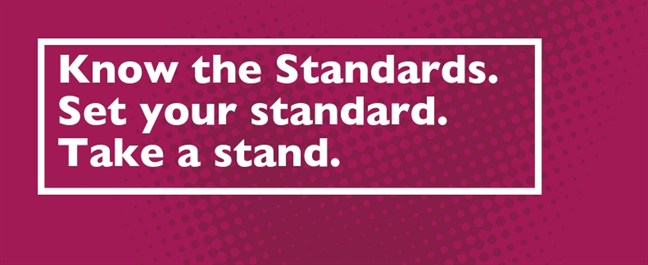NEWS
All the latest news and views from Bild.
1 April 2019
New Training Standards to reduce use of restraint for most vulnerable in society

New Training Standards have been launched today (1 Apr) by the Restraint Reduction Network to reduce the use of restrictive practices for some of the most vulnerable people in society.
Commissioned by NHS, the Restraint Reduction Network Training Standards 2019 provide a national and international benchmark for training in supporting people who are distressed in education, health and social care settings.
The Restraint Reduction Network is an independent body that brings together government departments, professional bodies, people with lived experience, practitioners and academics. It is a coalition of the willing who are passionate about restraint reduction and human rights. The Restraint Reduction Network is facilitated by BILD Restraint Reduction Network, a subsidiary of BILD.
These Standards will be mandatory for all training with a restrictive intervention component that is delivered to NHS-commissioned services for people with mental health conditions, learning disabilities, autistic people and people living with dementia in the UK. Implementation will be via commissioning requirements and inspection frameworks from April 2020.
Chair of the Restraint Reduction Network, Professor Joy Duxbury, said: “These Standards are a really exciting development. They are vital in our work to reduce the use of restrictive practices and, on those occasions when restraint is unavoidable, to make sure it is safer and dignified and used only as an absolute last resort.”
Norman Lamb, MP said: “This is a massive step forward and I congratulate BILD for their inspiring work. This is a serious human rights issue. Given that we know that it is possible to avoid the use of force in most circumstances, it is intolerable that it is still endemic in many services for people with mental ill health, those with a learning disability and with autism.
“For anyone who has suffered abuse in their life, to experience restraint, can be re-traumatising. It can destroy the relationship of trust with staff. Failing to give staff effective training, puts them into an invidious position. We also know that regular use of restraint results in a greater risk of staff injuries. So proper accredited training is long overdue. It could have a massive impact on the culture of services.”
Professor Tim Kendall, National Clinical Director for Mental Health, NHS England, said: “The NHS welcomes the publication of the Restraint Reduction Network Training Standards. These standards have been written to focus on ensuring training promotes human rights and supports cultural change necessary to reduce reliance on restrictive practices (rather than purely focus on technical skills). Certification of compliance with these standards will be a requirement in NHS commissioned and CQC regulated services from April 2020’
Dr Paul Lelliott, Deputy Chief Inspector of Hospitals (lead for mental health) at the CQC, said: “CQC has been concerned about the use of restrictive practices for some time so we are pleased to see the launch of the new Restraint Reduction Network (RRN) Training Standards. The standards will support staff in health and social care services to understand and apply the principles of minimising use of force with the aim of promoting human rights and person centred care of the people they are caring for. We look forward to seeing these standards rolled out and working in practice.”
Find out more from the Restraint Reduction Network Website here.
Follow the Restraint Reduction Network on Twitter for the latest news and announcements: @theRRNetwork
